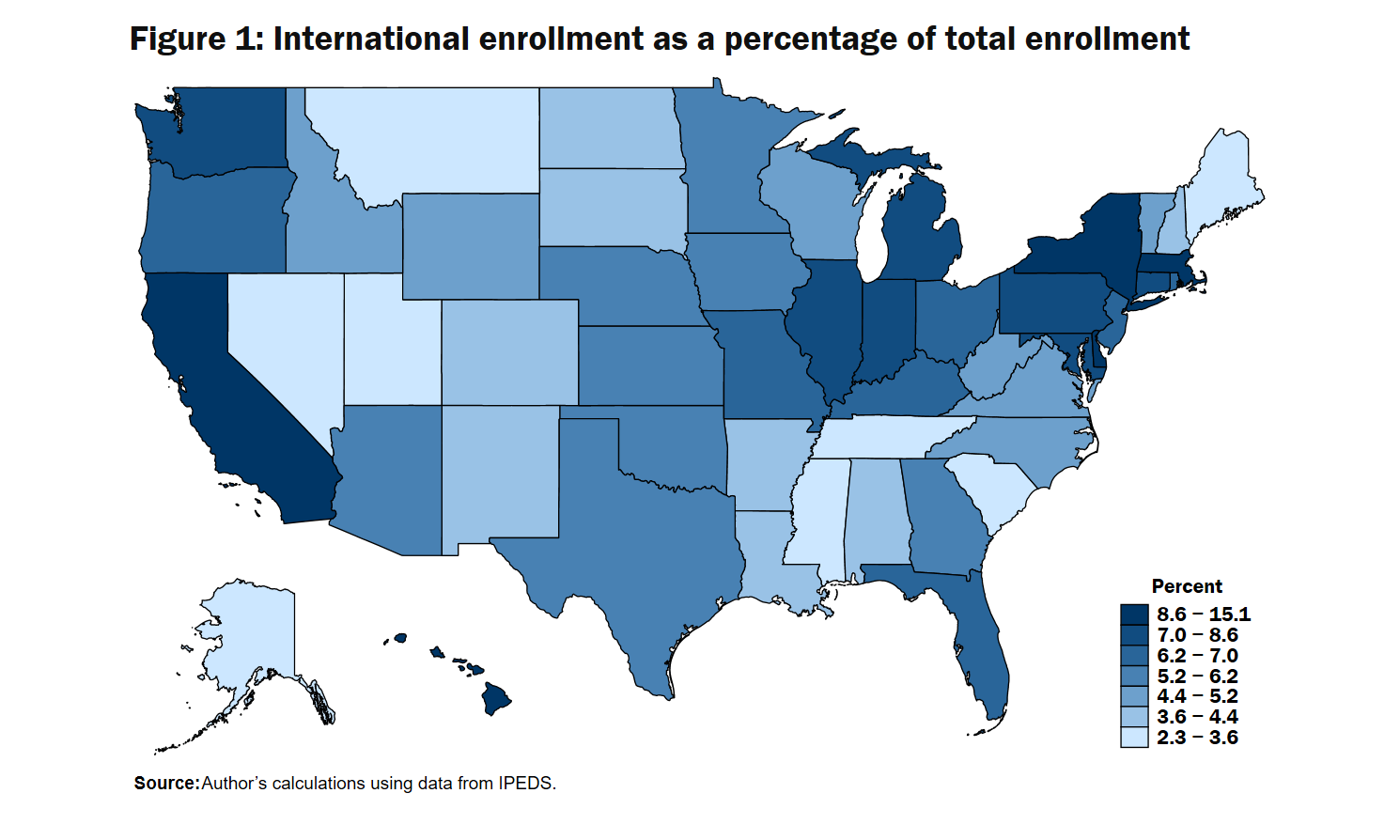Which is Better, Education or Experience →
Education usually refers to someone's higher learning, aka their university degree. Compare this to experience that provides learning from completing first-hand, practical tasks and immersing yourself in real-world situations.
Authors in the field of self-help and personal development often delve into the debate of education versus experience, exploring what can be learned from each.
Consider a deep-sea diver. Would a theoretical class or firsthand experience be more beneficial? The answer, echoing the phrase 'experience is the best teacher', suggests that direct personal experiences can be more impactful than secondhand knowledge.
“The only source of knowledge is experience.” – Albert Einstein.
“Learning is a treasure that will follow its owner everywhere.” – Chinese Proverb.
“Live as if you were to die tomorrow. Learn as if you were to live forever.” This quote from Mahatma Gandhi underscores the urgency of continuous learning, encouraging us to seize every opportunity to expand our knowledge.
Education and Experience Find Each Other in the Career Development Center →
This picture of the Idaho State University Career Development Center focuses on the most critical questions: Education or Experience? Education 1st, and then what?
The book “Why Professionals Use LinkedIn for Networking and More: Optimizing, Focusing, and Keeping Your Profile Current” was written by an alumnus of this particular university and was held by a student working in the center. A lifetime of experience
Note from Lance Erickson, Ed.D. Director at Idaho State University
Idaho State University
Pocatello, Idaho, United States
Brent: Thank you for recently sending a few copies of your books. We at the ISU Career Center have greatly enjoyed and learned from them. Thank you for sharing your insights and wisdom! -Lance Erickson
Note from Brandon Street > Southern Utah State University
Brent, Thank you for being willing to share your knowledge! I appreciate reading these books and learning from your experience to help our students better. All the best,
Brandon Street | Director - Career & Professional Development
Career & Professional Development Center
SOUTHERN UTAH UNIVERSITY
Sharwan Smith 204F |
——————————
Shelly Robinson <> University of Chicago
Hi Brent,
Thank you for your kind offer, and I am always happy to share strong content with my students.12520 Havenwood Pass, Cedar Lake, IN 46303. All the best,
Shelly L. Robinson, Ph.D.Director of Career Services
Sr. Program Development Officer Committee on International Relations MA Program in Computational Social Science The University of Chicago 5736 S. Woodlawn Avenue, Room 103773.834.1621 Shelly.Robinson@UChicago.edu
Polish all your skills continually not just when your looking for a job →
Sharpen the saw and polish your skills as suggested by Stephen R. Covey, and study your industry. Take an inventory of all your soft and hard skills to understand what you have. Be sure to identify all the skills required for your job. Determine which of those skills have been allowed to get out of date and are less valuable now. Some of those will be a problem as your industry changes. It is likely time to update and add new skills that complement what you have.
In addition to your current skills, studying the industry will teach you new skills that are also needed in your career focus. Some research will be required. You can use the informational interview approach to figure out what you need.
Identify others in the industry doing this, make an appointment to meet with them, and ask what skills they see emerging as necessary in your work. While doing this, learn about their company and point of view and add them to your network of contacts. If something happens that you can see would be of interest, then let your new network contact know and be a resource for them. Networking isn’t just about finding a job. It is also about staying current and connected in your profession. Spend some time fine-tuning your Soft Skills:
Expand your vocabulary
2. Embrace the plain language
3. Defeat your fear of public speaking
4. Improve your writing with practice
5. Perfect your listening skills
6. Practice dignity and respect
7. Stay Current - Know What is New in Your Industry that has Impacted the Skills Needed
In 2023, it was predicted that nearly half of the current workforce skills would become obsolete in just two years, primarily due to advancements in artificial intelligence. This underscores the need for continuous learning and skill updating to stay relevant in the rapidly changing job market. (New ways of doing things could also bring the need for new skills)
Key findings: Near-Total Transformation: About 49 percent of existing skills in the workforce in 2023 are predicted to be irrelevant by 2025.
LinkedIn can be a resource to see if you have missed some changes. Check out competitors and look at those employed in similar jobs and then at their profiles. What skills do they list? Are some a surprise, or are some the same as yours but with different titles? Are the titles and skills you find just different by name from what you have? Update your skill names, pick skills you need, and train for them.
Remember, the need for skill updates is not a one-time event. As the industry evolves, so should your skills. It's recommended to reassess and update your skills every 2-3 years to stay competitive and relevant in your field.
Experience and Education Still Matter →
Education is the starting process for making people more thoughtful about the end destination. Once you learn something, you have to figure out the value of knowing it.
Experience is what it takes to know how to accomplish the something with less effort because of lessons previously learned.
What you learn and experience can often determine your success or failure. Effortful learning combined with real-life on-the-job experience is a winning formula for success. Your choices and your experiences help create the person that you are.
Sharing an experience within the context of the lecture or advice consolidates learning, fosters better understanding, and impresses longer in the minds of students or those having the experience. It simply puts theories to practice firsthand.
How Do You Showcase Your Transferable Skills in Your Job Hunt? →
For job seekers, transferable skills can be your ticket to proving that you’re the right candidate for the role. After identifying the transferable skills you need to succeed in your next job, consider how you’ve demonstrated and showcase those skills at work and in your personal life, and prepare to relate them accordingly throughout the hiring process.
“Don’t be afraid to showcase the journey of how you’ve acquired and utilized these skills throughout your career, inside and outside of the office,” Your LinkedIn profile, resume, cover letter, interview, website, and any networking opportunities are all places you can highlight these skills to show why you are the best person to hire.
Adding critical transferable skills in your LinkedIn headline or “About” section About” section on LinkedIn is an essential step to being discovered by recruiters or hiring managers. Pro tip: The skills section on LinkedIn is keyword searchable, so be sure your top three skills are relevant to where you want to go!
On your resume, designating a skills section can pay off in more ways than one. “Giving the transferable skills their own real estate on the resume will make it easier for employers using key search words and shine a spotlight on your areas of strength,”
Soft skills, such as problem-solving and multitasking, can be included, as long as they aren’t too general (e.g., “people skills”) and align with the role’s requirements. It would help if you also expanded on how you’ve used your transferable skills in the bullet points describing your past jobs and other experiences.
Though skills sections commonly go on the bottom of a resume page, you might consider moving yours up if you want to lead with your transferable skills. You also have multiple resume format options to choose from. Entry-level and career-changer candidates may decide that a combination resume (or even a functional one combinationcombination resume (or even a functional resume)—which gives space to detail your skills front and center—is best for them. In contrast, candidates with relevant work experience may opt for a chronological resume.
Employment cocaches encourage candidates to be strategic about their cover letters. They say it is the perfect place to tell a story about how you plan to leverage your transferable skills to add value to the team.
This Simple Formula Makes Highlighting Transferable Skills Easy
You should also create an elevator pitch around how you’ve shown your abilities in the areas most crucial for your next role. For example, if you’re looking for a job where leadership is essential, you might craft your spiel around instances when you demonstrated that skill—both in and out of the office. Maybe you took the lead on training new hires at your last company, or you manage a recreational softball league on the weekends. Then, use your elevator pitch in networking opportunities or an interview. If there’s a specific job description to reference, you can frame your elevator pitch around it.
Interviews are also an opportunity to use the job description to anticipate the skills the hiring managers will be likely to ask about. You can practice your elevator pitch and answers to common interview questions, so they include how you leveraged your transferable skills to achieve results.
Throughout every stage of the application process, whether that’s in your resume, cover letter, or interviews highlight your skills. For example, if you are highly independent and have a knack for getting the job done without direction, and the job description asks for someone self-motivated—use the wording ‘self-motivated’ versus ‘independent. The more you can speak the language of where you’re going, the better you will position yourself for success in your search.
Examples of Transferable Skills?
Here are some examples to get you thinking about your transferable skills. Remember, this list isn’t exhaustive, and many skills can be mobile if they’re relevant to the next step in your career.
Communication Skills
Communication skills help you exchange information with people inside and outside your company. The ability to get your point across well will be relevant in any role where you have to interact with people or create or present content on behalf of or to your team or company.
Content Writing/Development/Creation
Editing
Grant Writing
Language Proficiencies
Phone Screening
Proposal Writing
Public Speaking
Interpersonal Skills
Interpersonal skills help you work well with team members, managers, direct reports, clients, and stakeholders. If your job requires interacting with people in any way, these are likely to be highly important.
Business Development
Client/Account Management
Collaboration
Conflict Management and Resolution
Customer Service
Partnership Development
Process Development
Relationship Building
Sales Skills
Teamwork
Leadership Skills
How you have exercised your ability to manage and lead can set you apart and are also industry-fluid.
Change Management
Company Culture Leadership
Employee Training and Development Facilitation
Mentorship Skills
Team Management or Leadership
People Management
Project/Program/Operations Management
Strategy Leadership
Talent Acquisition/Hiring Committee Leadership
Other Soft Skills
These talents and strengths can tell your future employer where you shine outside the job’s technical requirements.
Adaptability
Agility
Attention to Detail
Creative Thinking
Goal Setting
Independence/Self-Motivation
Innovation
Multitasking
Organization
Problem Solving
Resourcefulness
Time Management
Technical and Task-Oriented Skills
The tools and tasks you are proficient in could add value to your next opportunity, regardless of industry.
Accounting
Adobe Creative Suite
Bookkeeping
Content Management Systems (such as WordPress, Drupal, and Squarespace)
Customer Relationship Management (CRM) Software (such as Salesforce)
Database Management
Equipment Installation
Google Analytics
Graphic Design
HTML/CSS
Ideation and Concepting
Microsoft Office Suite: With software this broad, you might want to do specific tasks such as making pivot tables, creating macros, performing data analysis in Excel, or creating presentations in PowerPoint.
Project Management and Collaboration Software (such as Trello, Asana, Jira, Slack, and G Suite)
Reporting and Analysis Skills
Social Media Management and Scheduling
SEO
Professional Certifications: Certifications often speak to skills that can be transferable to other industries, such as Project Management Professional (PMP) certifications indicating that someone has project management skills, organization skills, and leadership skills. Credentials like Certified Information Security Manager (CISM) or Google Analytics Individual Qualification can prove you’re an expert in the skills they’re named for.
Typing
Website Design
Change is the end result of all true learning - so seek change →
Education expands our vision and gives us knowledge of the world around us, and education changes it into something better. It changes our perspective of looking at life and enables us to form our points of view on things in life. It develops the capabilities to fight against injustice, violence, corruption, and other harmful societal elements.
“Change is the result of all true learning.-Leo Buscaglia” “Learning never exhausts the mind.-Leonardo da, Vinci.” “- Aristotle.” “Learning is not attained by chance; it must be sought for with ardor and attended to with diligence -Abigail Adams. ”
Polishing your Skills means that you should never stop Learning →
The ideas behind Stephen Covey’s 7th habit, which he wrote about in his 1989 book The 7 Habits of Highly Effective People, are nothing new. His message was that we should disconnect from the outer world to take time and recharge our batteries.
From Lincoln’s comment that If he had six hours to chop down a tree, he would spend the first four hours sharpening the ax, anyone who has ever chopped down a tree knows, of course, that time spent sharpening the ax is well worth it and will save more time than it costs. Dull axes mean you don't chop but instead just pound and pound. Time spent pounding suggests that recharging one’s batteries and rethinking would be wise.
Whether you are out of work or not, your skills have become dated. A close examination of your skills would be timely. Before you draw any conclusions, remember: You don't know what you don't see, so you need to study your industry. Find out what is new. Find out what the competition is doing. Never stop learning.
20 top best certifications to have in business →
Continuing education is courses that let you develop your knowledge and skills in a specific area. LinkedIn learning or Udemy is a popular way to take classes and stay current professionally. One reason that courses are often taken is to keep current in a profession.
Jane Kellogg Murray is a senior editor for Indeed's Career Guide, and she wrote an article in November 2020 titled “The 20 Most-Requested Certifications by Employers in 2020
Her article identified the certifications most frequently included in new job postings over the past year. While many in-demand certifications are healthcare-oriented, you'll also find in-demand tech, warehouse, and hospitality credentials.
CPR certification
BLS certification
Certified nursing assistant
ASE certification
ACLS certification
First Aid certification
ServSafe certifications
Certified medical assistant
Scrum master certification
PALS certification
Forklift certification
BC/BE
PMP certification
Child Development Associate certification
ARRT certification
Pharmacy Technician certification
NRP certification
Home Health Aide certification
CompTIA Security+ certification
CISSP
Artificial Intelligence to Replace Humans in Knowledge Based Professions →
Artificial intelligence is expected to replace many humans in professions that rely on knowledge and linear thought, such as medicine and law; thousands are training for fields, such as coaching, where intuition, creativity, people skills, and communication tools are more difficult to replicate in machines.
Ten examples of jobs that may be replaced:
Telemarketing.
Bookkeeping Clerks.
Compensation and Benefits Managers.
Receptionists.
Couriers.
Proofreaders.
Computer Support Specialists.
Market Research Analysts.
Customer Service
Research & Data Entry
Knowledge based industries are those industries which are based on their intensive use of technology and/or human capital. While most industries are dependent in some way on knowledge as inputs, knowledge industries are particularly dependent on knowledge and technology to generate revenue.
Communication Skills are Transferable Skills: All of them! →
Career education plays a crucial role in helping students understand their career goals. It equips them with the skills, knowledge, and encouragement they need to navigate their desired career path. As a result, students who study this subject often display higher engagement and motivation, as they have a clear understanding of what they want to achieve.
Communication skills are not just your ability to talk in a job interview convincingly or convey information to people inside and outside the company. It includes getting your point across and being understood when and wherever you interact with people on behalf of or to your team or company. These skills include the following:
Content Writing/Development/Creation
Editing
Grant Writing
Language Proficiencies
Phone Screening
Proposal Writing
Public Speaking
Scrum and Agile: What is the difference, and what about other Certifications →
Getting further certifications is good advice for continuing to educate yourself and keep yourself marketable.
Scrum and agile training are appropriate for anyone in the corporate structure dealing with rapidly changing demands. In a traditional organization, these roles might include: Program Managers
Technical Writers
Directors
Project Managers
Product Managers
Engineers
Developers
Stakeholders
Designers
The critical difference between Agile and Scrum is that while Agile is a project management philosophy that utilizes a core set of values or principles, Scrum is a specific Agile methodology used to facilitate a project.
Scrum is a subset of Agile. It is a lightweight process framework for agile development and the most widely-used one. A “process framework” is a particular set of practices that must be followed for a process to be consistent with the framework.
Scrum training and certification refers to courses and exams available to provide instruction and certify aptitude in Scrum.
Scrum Alliance and Scrum.org are considered by many as the two most reputable Scrum certification organizations.
Certification for Sales Professions (CPSP) →
Salesmanship combines both science and art. The art requires practice and application of correct methods, and the plans reflect a science of interactions. Of course, natural skills and inborn talent help, but study and a solid professional interest are essential. This shows that salesmanship is art-science based.
While not appropriate for every position, candidates for sales positions can stand out by becoming certified professional salespeople. This demonstrates competence in a well-known sales philosophy and that the holder has learned how to improve their sales abilities from an expert.
The National Association of Sales Professionals (NASP) offers a six-week online training course to those interested in advancing their sales profession. When you spend a lot of time around salespeople, their differences stand out. The best salespeople are proud of their skills. They recognize how many different professional areas of focus are needed to be good at sales. These are the kind of people who take the additional steps during their careers to learn all they can. Certification is natural for the professional salesperson.
Project Management Professional Certification should be on your list to get →
The Career Education section of the Personal Development section presents this information as a valuable area of focus in adding necessary certifications to your career path.
Project Management Professional (PMP) is an internationally recognized professional designation offered by the Project Management Institute. (PMI) It is the gold standard of project management certification. Recognized and demanded by organizations worldwide, the PMP validates your competence to perform as a project manager, leading and directing projects and teams.
A PMP certification can help you advance your career as it reflects your education, skill, and persistence level. It’s also ideal because it isn’t just limited to one industry. It can apply to healthcare, publishing, information, professional, construction, finance, and insurance.
The Project Management Institute offers this certification and includes prerequisites, such as a high school diploma, 7,500 hours of leading projects, and 35 hours of project management education. The alternative is a four-year degree, 4,500 hours of directing projects, and 35 hours of project management education. To obtain this certification, candidates must organize their work experience on the application and pass a 200-question multiple-choice exam, which is now available online. You must earn 60 professional development units annually to maintain the certification.
Education helps to understand things that have been right in front of you and you didn't know →
An African proverb teaches: “If you think that education is expensive, then try ignorance.” Connected Events Matter's website devotes 30+ subsections of its Life Skills section to finding answers, eliminating roadblocks, and advancing your career. Even if you sincerely embrace these ideas, more is needed.
"Be passionate about improving. Be passionate about helping others. Listen to your feelings.”
Passion is the fuel that drives personal growth and career advancement. It's what makes you want to improve and help others. But to truly make a difference, you need the right education. Without it, you might feel love but not know what to do with it. It's like walking around with a sack on your head-you won’t see the opportunities right before you.
Certification for career advancement should not be overlooked even if your working
A certification is a credential that demonstrates that you have the knowledge, experience, and specific skills needed in a particular field or job.
Certifications are different from professional licenses that may be required to hold specific jobs. Certifications assess and verify that a person has proficiency or even has mastered particular abilities and skills, which can then be used to accelerate career growth in a field rather than a specific job.
Online certification options to advance your career are available in many professions. Below find some popular ones that can increase your career.
1. Project Management Professional
2. Society of Human Resources Management Certifications
3. Leadership and Management Certificate
4. Certified Professional Sales Person (CPSP)
5. CompTIA certifications
6. Salesforce certifications
Eight ways to continue your educational efforts to help you stand out in your career
Education Matters, if for those already in the workforce. Never stop learning
Read moreInternational Students are essential to the United States →
By Brent M. Jones
International students make up 5.5 percent of the total U.S. higher education population. According to data from the U.S. Department of Commerce, international students contributed $44.7 billion to the U.S. economy in 2018, an increase of 5.5 percent from the previous year. A ranking of the top 15 countries in 2018 shows the following, starting with the top-ranked countries Mainland China, India, South Korea, Saudi Arabia, Canada, Vietnam, Taiwan, Japan, Mexico, Brazil, Nepal, Iran, Nigeria, United Kingdom.
An article in WENR World Education News + Reviews asks: “Was It Worth It? The article also asked about International Student Views on the value of their U.S. Education”. The student’s perception of their U.S. education experience was: “The overwhelming majority of international alumni indicated that their U.S. degree was a good investment, partly because of high social and cultural returns. Alumni appear to be benefiting from the increased internationalization on U.S. campuses. Most respondents indicated that their education expanded their global perspective and enhanced their ability to get along with people of different backgrounds, suggesting the development of intercultural and academic competencies. In addition to noting these social returns, respondents said their problem-solving skills improved as part of the well-rounded education they received in the United States.”
With the COVID-19 pandemic and the changing political climate, there has been concern about the future of the United States as an international educational destination. In a reversal of current policy, the federal government announced in mid-July 2020 that they would allow international students to stay in the U.S. while taking only online classes. On Tuesday, the Trump administration returned to recent guidance that would have deported international college and university students if they were enrolled exclusively in online courses this fall.
The reason for the change back in policy hopefully was done because it became clear it was the right thing to do. Of course, it seems logical that it also mattered that 20 states, the District of Columbia, and about two dozen universities filed various lawsuits to block the policy change from going into effect. Also, Harvard and MIT argued in their case that the July 6 directive reflected an effort by the government to force universities to reopen despite the continuing dangers posed by the coronavirus pandemic.
Never Stop Being a Student of Your Industry →
By Brent M. Jones
Burnout is often blamed on job stress that affects an individual’s physical and emotional state and causes mental exhaustion. Often burnout is considered the fault of management, suggesting that the workplace is not managed correctly.
Finding your ideas considered out of date leads to boredom. Placing the blame for boredom leads to denial of what may be the real problem of outdated ideas. I was talking with an old friend about his successful career. He told me he felt his longevity in the industry was perhaps perceived as a negative and wondered if others in the industry felt the same about his longevity. I had to ask myself how this could be. His vast experience should be viewed by himself and others as “added wisdom” gained by trial and error. His viewpoint spoke loudly to his own “burnout,” but is that what years of work must lead to?
The dictionary definition of burnout is “the end of the powered stage in a rocket’s flight when the propellant has been used up.” With people, a lot of energy pursuing various goals is used up, and when people are burned out, they feel somewhat used up and complacent. You can hear the burnout in someone saying, “We tried that once before, and it didn’t work so it won’t work now.” Think of new approaches or new ways to use old products and concepts. This will provide you with renewed energy. As a veteran, you shouldn’t worry about making a mistake. You, of all people, should know that a failure or setback becomes an opportunity.
When worrying about burnout, we should stop thinking about the past and look to the future. Don’t start by asking yourself how things have always been done but look back at your past experiences and ask yourself what has changed and why. What is changing in the marketplace right now? Study your industry and learn new things.
Business analyst and author Peter Drucker have said, "The best way to predict the future is to create it."
Also, see: Polishing your Skills means that you should never stop learning.































